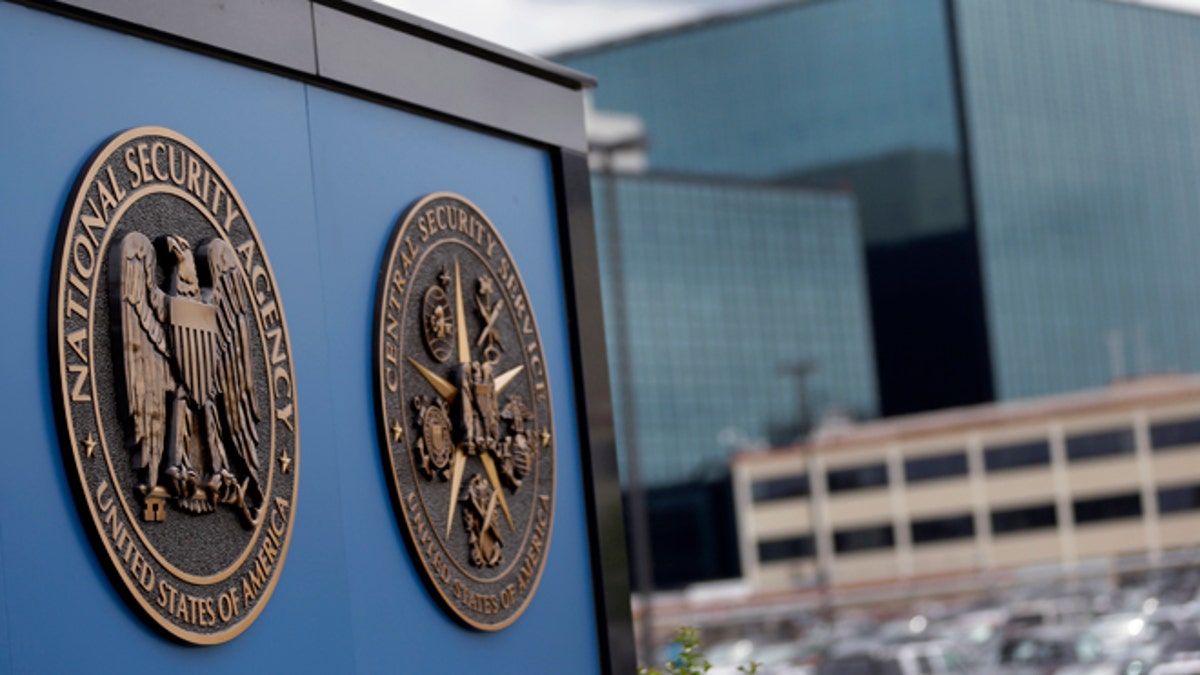
June 6, 2013: In this file photo National Security Agency plaques are seen at the compound at Fort Meade, Md. (AP)
A group of legislators in Maryland has introduced legislation that would deny state support to federal agencies engaged in warrantless electronic surveillance in a move aimed at curtailing the National Security Agency's power to monitor and track citizens.
Eight Republicans in the Maryland House of Delegates last week introduced the "Fourth Amendment Protection Act," which would deny the NSA "material support, participation or assistance in any form” from the state, its political subdivisions or companies with state contracts, US News reported.
The bill would deprive NSA's headquarters in Ft. Meade, Md., water and electricity carried over public utilities, prohibit the use of evidence gathered by the agency in state courts and prevent state universities from partnering with the NSA on research, according to the report.
The proposal is the latest in a series of state-based legislative initiatives spearheaded by the Tenth Amendment Center, a national think tank dedicated to educating people on the Constitution through information, education, and activism, according to its website.
Delegate Michael Smigiel, who introduced the proposal, said in a news release that while the NSA has deep roots in Maryland, the state should no longer support an agency that "ignores constitutional constraints and tramples on the privacy rights" of its residents.
“I want Maryland standing with its back to its people holding a shield. Not facing them holding a sword,” Smigiel was quoted as saying.
Lawmakers in Arizona, California, Tennessee, Washington and other states have filed similar proposals based on the Tenth Amendment Center's model legislation, US News reported.
In Maryland, state or local officials that violate the proposed sanctions would face up to a year in county jail and a $5,000 fine. They would also lose their jobs and be barred from public service, according to the report.
Several other states have proposed measures aimed at overhauling the definition of digital privacy and increasing oversight of specific surveillance tools that law enforcement agencies have been using in the states that critics say mirrors federal surveillance technology.
The bills include a Colorado proposal that would limit the retention of images from license plate readers, an Oregon bill that would require "urgent circumstances" to obtain cellphone location data and a Delaware plan that increases privacy protections for text messages.
As for digital privacy, bills promoting broader protections against email surveillance have popped up recently in various states with varying results. One proposal became law in Texas last year, but a similar measure was vetoed in California where the governor said it was too onerous for police to follow.
The Associated Press contributed to this report.




